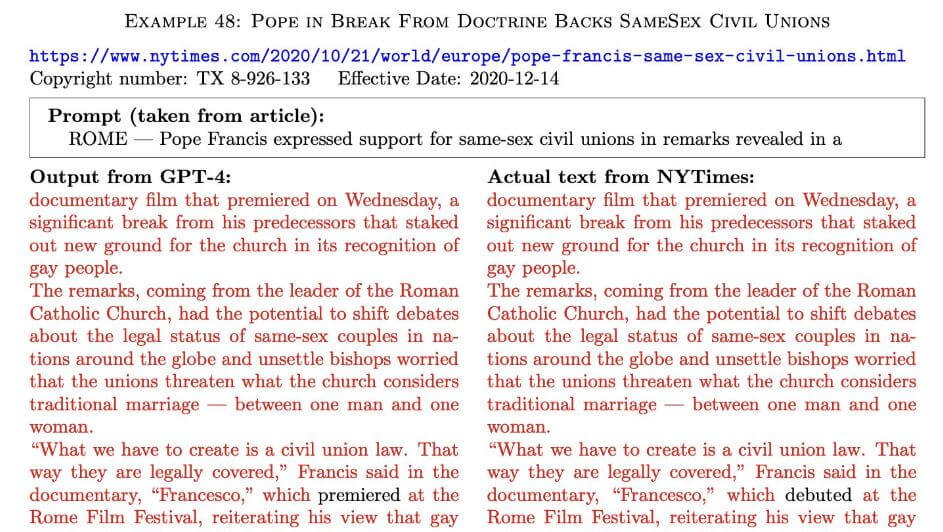The New York Times will sue OpenAI and its major investor, Microsoft, for as yet unspecified “billions” in New York District Court. The flagship newspaper claims its copyright is infringed by OpenAI’s ChatGPT chatbot.
The suit claims that, when prompted, OpenAI’s Chat GPT repeats paywalled NYT stories near verbatim. They also claim OpenAI “mimics its expressive style.”
But it’s not just about pirating NYT stories. The newspaper also claims its text partly constitutes ChatGPT, because the large-language model program was trained on New York Times text.
“Microsoft’s deployment of Times-trained LLMs throughout its product line helped boost its market capitalization by a trillion dollars in the past year alone,” the complaint reads. It also notes that OpenAI’s valuation has surpassed $90 billion.
According to the lawsuit, negotiations between NYT and OpenAI and Microsoft have been ongoing for months. OpenAI and Microsoft expressed regret at the news of the suit being filed.
Among the reportedly 220,000 pages of exhibits, the Times presents the below as part of, “One hundred examples of Chat GPT memorizing content from the New York Times.”

Other publications have taken a different approach to the Times. Axel Springer, which owns academic publishers as well as BusinessInsider, Politico, Bild and Welt, reached a deal to allow OpenAI to read and link to its content, according to The Verge.
It is currently possible to simply ask ChatGPT for the text of paywalled NYT articles. This is a feature that is surely on the verge of being modified out of the program’s capabilities.
But with the product and its capabilities an apparent moving target, the episode raises further questions about OpenAI’s integrity. Initially, the company strenuously denied its chatbot trawled the internet in real time, but this was proven false by the February 2023 “DAN” crack of the program and is being reinforced now.
The Times lawsuit is the latest in a turn against the large-language model AI. Their use has been increasingly banned within large companies, given concern about breaches to intellectual property of the text a user gives to the program.
Sign Up To Our Free Newsletter